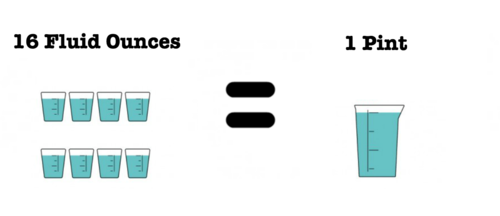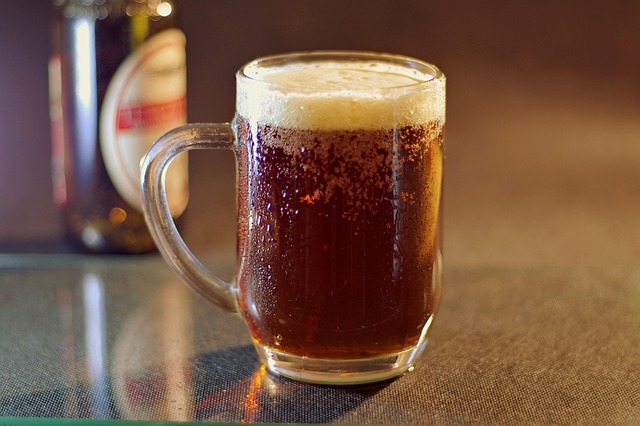A pint is a unit of measurement for volume or the amount of liquid that a container can store. Although it is used to measure things in both places, the term pint is more familiar in the United Kingdom than in the United States. In a pub, a pint is a large glass that holds one fluid pint of beer, and pints of milk are also available in the UK. In the United Kingdom, a pint equals 0.57 liters, but in the United States, it equals 0.48 liters. Let’s get to the question, How many ounces in a pint?
Let’s say you’re making rootbeer floats, and the recipe calls for ounces of vanilla ice cream. In the world of ice cream, pints are very common package size and when you went to the grocery store to buy ice cream, it is being sold in ‘pint’. So now you are wondering, how many ounces in a pint?
1 pint equals 16 fluid ounces.
A pint (pt) in the US customary system of measurement is composed of 16 fluid ounces (fl oz). A pint is 20 fluid ounces in the imperial system of measurement.

The term “fluid ounces” is not to be confused with the term “ounce,” which relates to weight or mass. They aren’t actually related. A dry pint is not a weight measurement; rather, it is a volume measurement expressed in cubic inches. A liquid pint is a measurement of fluid ounces, such as a pint of cream. 16 fluid ounces equals one liquid pint.
Here are some quick US and Imperial conversions
| Pint | Ounces |
| ⅛ Pint | 2 ounces (US) |
| ¼ Pint | 4 ounces (US) |
| ½ Pint | 8 ounces (US) |
| 1 Pint | 16 ounces (US) |
| 1 Pint | 20 ounces (Imperial) |
| 2 Pint | 32 ounces (US) |
| 2 Pint | 40 ounces (Imperial) |
| 3 Pint | 48 ounces (US) |
| 3 Pint | 60 ounces (Imperial) |
| 4 Pint | 64 ounces (US) |
| 4 Pint | 80 ounces (Imperial) |
| 5 Pint | 80 ounces (US) |
| 5 Pint | 100 ounces (Imperial) |
| 10 Pint | 160 ounces (US) |
| 10 Pint | 200 ounces (Imperial) |
| 20 Pint | 320 ounces (US) |
| 20 Pint | 400 ounces (Imperial) |
Are you interested in other conversions?
- How Many Cups in a Pint?
Read More - How Many Tablespoons in 1/4 Cup?
Read More - How many Oz is a full chicken breast?
Read More
Source: Quora.com /





